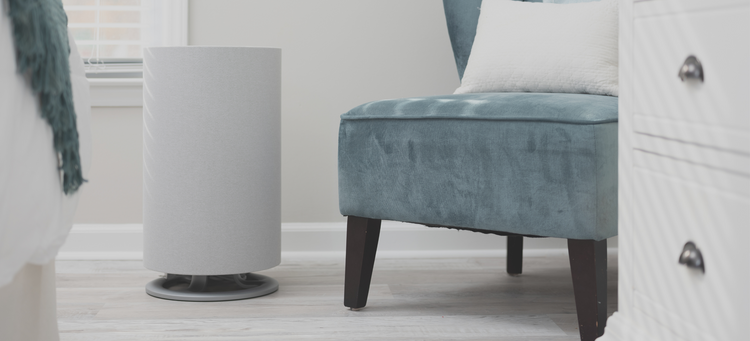10 Ways to Stop Summer Colds Naturally
Summer brings a host of enjoyable activities as the temperatures rise and the sun shines brighter. It can also present some not so fun challenges like catching summer colds. Common colds are typically associated with colder seasons, but the truth is they can occur any time of the year including the summer.
There are natural ways to mitigate these nasty summer colds so they’re not as bad — or you can hopefully avoid them altogether! Summer’s a time for rest and relaxation in welcoming warm weather, so don’t let the summer colds get you down!
Strengthen Your Immune System
One of the most effective ways to prevent summer colds, and the common cold in general, is to strengthen your immune system. Maintaining a balanced diet rich in fruits, vegetables, yogurt, and whole grains helps to keep your immune system strong. Staying hydrated and getting regular exercise is also essential.
Wash Your Hands Frequently
It can be difficult to strengthen your immune system, especially if you have an autoimmune disease or are immunocompromised. Something we can all do to keep the colds away is to wash our hands frequently. Handwashing is a simple yet effective way to remove viruses and bacteria from your hands before they can be inhaled or ingested. Washing with soap and water throughout the day is crucial for overall hygiene. It’s most important to clean your hands before meals, after using the restroom, and after being in public places with shared surfaces.
Get Good Sleep
Good sleep is essential for a healthy immune system. Make sure you’re getting 7-8 hours of quality sleep each night. It’s best to establish a bedtime routine and create a comfortable sleep environment so you can get restful sleep. It’s always important to get good sleep, but when you do inevitably get a cold, rest and relaxation is essential for recovery.
Stay Hydrated
Proper hydration is crucial for overall well-being and plays a significant role in preventing summer colds. Everyone is more prone to dehydration in the hotter months, so keeping hydrated in the summer is even more important. Drinking plenty of water and other hydrating drinks with electrolytes throughout the day helps keep your immune system strong. If you do get sick, staying well hydrated will help with recovery times and ease symptoms.
Practice Good Respiratory Hygiene
Summer colds are an unfortunate part of the season. Even if your entire household tries their best not to get sick, germs can still be spread easily once in the home. Practicing good respiratory hygiene along with good hand hygiene helps to reduce the risk of spreading a summer cold. Covering your mouth and nose with a tissue or doing the vampire cough, using the inside of your elbow crease to cover your mouth or nose when coughing or sneezing, can help prevent the spread of a virus like the common cold. Following this up with disposing used tissues properly and washing your hands afterwards is an easy way to mitigate the spread of viruses.
Maintain Clean Indoor Air Quality
Indoor air quality can have a significant impact on your health. Using air purifiers to effectively filter out airborne pollutants including bacteria, viruses, dust, pollen, and pet dander helps with overall health. Running air purifiers to continuously clean the indoor air of bacteria and viruses is an easy, natural way to mitigate allergy symptoms and virus spread.
Regularly Clean And Vacuum Your Home
Dust, allergens, and other contaminants can accumulate in your home and contribute to poor indoor air quality. We generally spend more time outdoors in the summer months and have more friends and family visit for vacations and get togethers. With the increase of pollen in the air and more people potentially tracking what’s outside indoors, it’s important to clean regularly. An air purifier helps capture a lot of what’s in the air, but it won’t capture 100% of dust, pollen, and other particles. Sadly, dusting and regular cleaning is still necessary. It will also help reduce the presence of irritants that can potentially cause summer colds.
Increase Ventilation
Proper ventilation helps circulate fresh air and improve indoor air quality. Opening the windows whenever possible is an easy, natural way to increase ventilation. Of course, the weather can be too hot and humid for this to be a good option all the time. In the summer, it's best to get that fresh air in the early morning and late evening when the outdoor temperatures are cooler. Opening multiple windows allows for cross-ventilation, which reduces the concentration of airborne pollutants floating around in your home. Keep in mind though, it’s best to keep the windows closed when pollen is an issue if you have allergies and instead rely on air purifiers to maintain healthy indoor air quality.
Minimize Exposure To Airborne Allergens
Summer allergies can exacerbate the risk of developing cold symptoms. Keeping windows closed during peak pollen times, using allergy-proof bedding covers, and regularly cleaning and replacing air filters in your cooling system will reduce exposure to allergens. It’s sometimes difficult to tell the difference between allergies and a minor cold since the symptoms can be very similar. Either way, you want to avoid aggravating these symptoms, so avoiding airborne allergens is essential to minimize allergy symptoms.
Practice Stress Management
Stress can weaken the immune system, which makes you more susceptible to infections. Engaging in activities that help reduce stress such as practicing yoga, meditating, or taking a walk everyday are proven strategies for managing stress. Prioritizing self-care and finding healthy ways to relax and unwind will help with your stress management.
There are several ways to try to naturally avoid catching summer colds. Most of them include strengthening your immune system, practicing good hygiene, and improving indoor air quality. These are also great, healthy goals throughout the entire year and should help you minimize catching and spreading colds year round.







